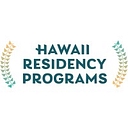
Pathology Residency
About
Ours is a comprehensive and balanced AP and CP training program whose enthusiastic and dedicated faculty members include pathologists who practice and teach in a variety of laboratory settings, and represent numerous subspecialty disciplines. Our program’s many strengths include its practical and rigorous community-based nature, diverse elective offerings, and opportunities for teaching, educational travel, and research. A unique aspect to our program is exposure to tropical medicine and referred cases from the entire Pacific Rim. Graduates of our residency program go on to obtain competitive fellowships in all subspecialties, and become skillful and confident pathologists in both community and academic centers. We welcome motivated applicants to apply.
Our program offers fully accredited training in anatomic and clinical pathology. The educational format centers on the evaluation of laboratory material from individual patients with emphasis given to clinicopathologic correlation. The case study approach is augmented by providing a comprehensive, well-balanced curriculum using didactics, local and nationally recognized consultants, pathology study sets, on-line resources and reading assignments in relevant texts and journals.
Our pathology residents are expected to constantly expand their knowledge through extensive reading, frequent case presentations, laboratory bench work and case-based learning. Each resident is given graduated patient care responsibilities according to their progress and capabilities. Supervision is provided at every level by our Board Certified Faculty. Our residents are expected to develop expertise in making decisions and judgments about individual cases, learning to be an effective problem solver and becoming a consultant.
Residents at the University of Hawaii Pathology Residency Program are exposed to a broad spectrum of clinical cases not available in other regions due to the diverse multiethnic society in Hawaii and the Pacific. The training experience is also enhanced by the involvement of multiple types of institutions and practice models, including three major hospitals, private practice, military exposure, HMO’s, and institutions on the mainland.
The Program requires residents to pursue at least one relevant scholarly project during their training. With the help of pathology staff mentors, completed projects are presented to our training program, the Hawaii Society of Pathologists and national pathology meetings. Ultimately, we expect worthy projects to be published in a scientific journal.
In summary, our residents receive a rigorous and balanced experience and education.
Curriculum
Program-Wide Conferences:
Anatomic Pathology “Grand Rounds” Conference Series
Anatomic Pathology Interesting Cases Conference Series
Unknown Slide Conferences (including Hot Seat Unknown Slides)
Neuropathology Conferences
Clinical Pathology Conference Series
Case Forums
RISE & Board Review Conference Series
Research Conference Series
Laboratory Management and Pathology Practice Management Conference Series
Tumor Board Conference Series
Expert Pathologist (Visiting Professor) Conference Series
Journal Club
Application
The application procedure usually includes these key steps:
ERAS (Electronic Residency Application Service): Utilized by most residency programs, including Hawaii Residency Programs, Inc., ERAS is the platform where you will need to register, fill out your profile, and upload your application documents.
Personal Statement: Craft a persuasive personal statement that underscores your dedication to pathology, outlines your relevant experiences, and states your professional aspirations.
Letters of Recommendation: Secure impactful recommendations from faculty, mentors, or leaders familiar with your work ethic and personal qualities.
Transcripts: Provide your medical school transcripts as part of your application.
USMLE Scores: For international medical graduates, it’s essential to submit your USMLE (United States Medical Licensing Examination) scores.
Interviews: Should your application stand out, you will be invited for interviews. This is your opportunity to demonstrate your genuine interest in pathology and discuss your qualifications in more detail.